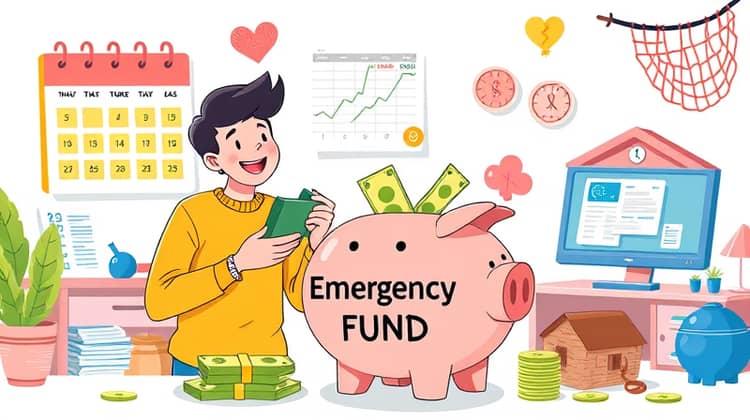In today's unpredictable world, having a financial safety net is more important than ever. An emergency fund serves as a cushion against unexpected expenses that can arise at any time, from medical emergencies to sudden job loss.
By setting aside savings specifically for emergencies, you can prevent financial stress and avoid debt when the unexpected occurs. Let's dive into the concept of emergency funds, their importance, and how to create and manage one effectively.
What Is an Emergency Fund?

An emergency fund is a dedicated savings account that is set aside specifically for unforeseen expenses or emergencies. This can include unexpected medical bills, home repairs, car accidents, or loss of income.
The main purpose of an emergency fund is to provide financial security and peace of mind, allowing individuals to handle emergency situations without derailing their financial stability.
Key Reasons to Save for Emergencies

Having an emergency fund is crucial for several reasons. First and foremost, it provides a financial safety net that can help you navigate through tough times without accumulating debt. In a world where the unexpected is the norm, having this fund can be the difference between stability and financial chaos.
Moreover, an emergency fund allows you to take control of your finances. You won’t have to rely on credit cards or loans, which can lead to spiraling debt. Having access to your own money means you're less dependent on external financial support during a crisis.
Lastly, an emergency fund can contribute to your overall financial wellness. When you know you have money set aside for emergencies, your stress level decreases, enabling you to make smarter financial decisions and focus on long-term goals. It can also foster a sense of security and confidence in managing your finances.
- It serves as a buffer against unexpected expenses.
- Helps prevent the need for high-interest debt.
- Provides peace of mind and financial security.
How Much Should You Save?

Determining how much to save in your emergency fund depends on your individual circumstances, such as your income, expenses, and personal preferences. Financial experts often recommend having three to six months' worth of living expenses saved to cover any emergencies that might arise.
- Calculate your monthly living expenses.
- Multiply your monthly expenses by three to six, based on your comfort level.
- Aim for a target amount that feels achievable but substantial enough to cover most emergencies.
Once you reach your savings goal, it’s important to continue to replenish your fund after using it for any emergencies. This ensures that you remain prepared for potential future situations.
Where to Keep Your Emergency Fund

When selecting a place to keep your emergency fund, consider factors such as accessibility, interest rates, and safety of the funds. The ideal account would balance easy access with the ability to earn some interest.
- High-yield savings accounts
- Money market accounts
- Certificates of Deposit (CDs) with short terms
Tips for Building Your Emergency Fund

Building an emergency fund often requires consistent effort and strategic planning to achieve your goal.
- Set a clear savings goal based on your expenses.
- Create a budget to incorporate regular savings contributions.
- Automate transfers to your emergency fund from your checking account.
Conclusion

Ultimately, creating and maintaining an emergency fund is an essential step in securing financial stability. It cannot be overstated how crucial it is to be prepared for unforeseen circumstances that can arise at any moment.
By prioritizing your emergency fund, you are investing in your peace of mind and financial health, allowing you the freedom to focus on your long-term goals and enhancing your overall quality of life.














